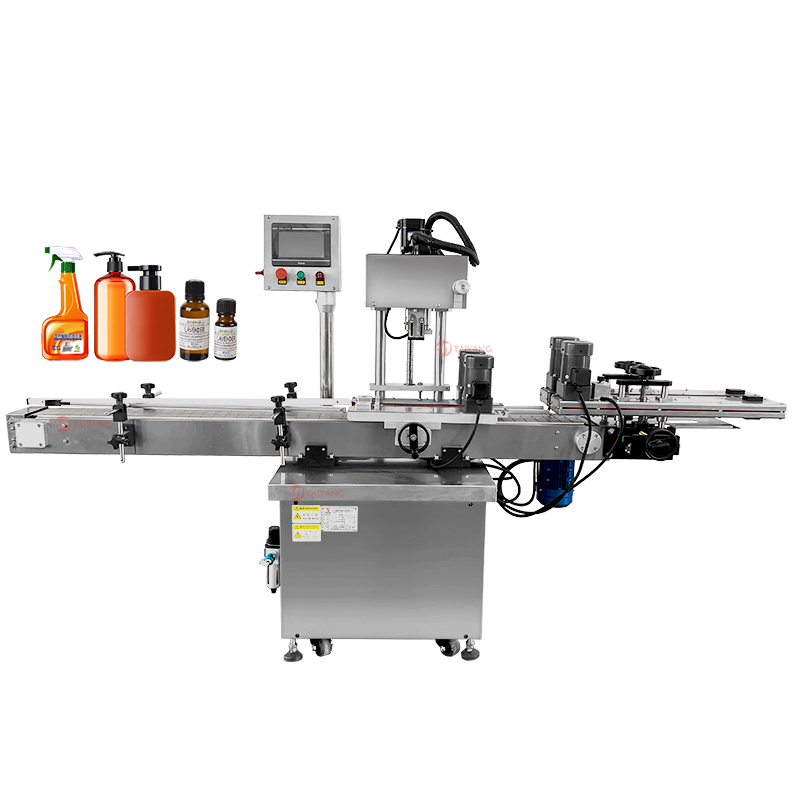Capping Machines: Ensuring Precision and Productivity in Packaging
2025-06-09
In today’s fast-paced manufacturing world, efficiency and precision are essential—especially when it comes to packaging. One key piece of equipment that helps businesses achieve both is the capping machine. Whether used in the food and beverage industry, pharmaceuticals, cosmetics, or chemicals, capping machines play a crucial role in securing products, preserving quality, and enhancing shelf appeal.

What Is a Capping Machine?
A capping machine is an automated device used to securely apply caps, lids, or closures to containers such as bottles and jars. It ensures consistent torque, airtight sealing, and high-speed production—making it an indispensable part of modern packaging lines.
There are various types of capping machines tailored to different closure types and production needs, including:
Screw Capping Machines
Snap Capping Machines
ROPP (Roll-on Pilfer Proof) Capping Machines
Press Capping Machines
Vacuum Capping Machines
Why Capping Machines Matter
Capping is the final step in the bottling or filling process—and it's a critical one. A poorly sealed container can lead to:
Product contamination
Spillage or leakage
Shortened shelf life
Brand damage due to customer dissatisfaction
By automating the capping process, manufacturers ensure uniform closure strength, reduced labor costs, and improved output quality.
Key Benefits of Using a Capping Machine
Consistent Sealing
Eliminates human error and ensures every cap is tightened to the correct specification.
High Throughput
Some high-speed machines can cap hundreds of bottles per minute, dramatically increasing production efficiency.
Versatility
Handles a wide range of cap types and container shapes, often with quick changeover capabilities.
Hygienic Operation
Especially important in industries like food and pharmaceuticals, automated capping minimizes manual contact and contamination.
Cost Efficiency
Though an upfront investment, capping machines reduce operational costs over time by cutting labor and waste.
Choosing the Right Capping Machine
When selecting a capping machine, consider the following factors:
Cap type: Screw-on, snap-on, press-fit, twist-off, etc.
Container material and size
Production speed requirements
Integration with existing filling or labeling machines
Automation level: Semi-automatic or fully automatic
For example, a pharmaceutical company may require a fully automatic capping machine with torque control and bottle indexing, while a startup beverage brand might prefer a compact semi-automatic screw capper for lower volumes.
Popular Applications Across Industries
Food & Beverage: Juice, water, sauces, condiments
Pharmaceuticals: Syrups, supplements, essential oils
Cosmetics & Personal Care: Lotions, shampoos, creams
Chemicals: Cleaning solutions, lubricants, adhesives
Final Thoughts
In any bottling process, the cap is the final barrier between your product and the outside world. Investing in a reliable capping machine means investing in product integrity, production efficiency, and customer satisfaction.
Looking to automate your packaging process?
We offer a full range of customizable capping machines to meet your production needs. From compact tabletop units to fully automated rotary systems, our solutions are designed to grow with your business.
Contact us today for expert guidance and a free quote!


